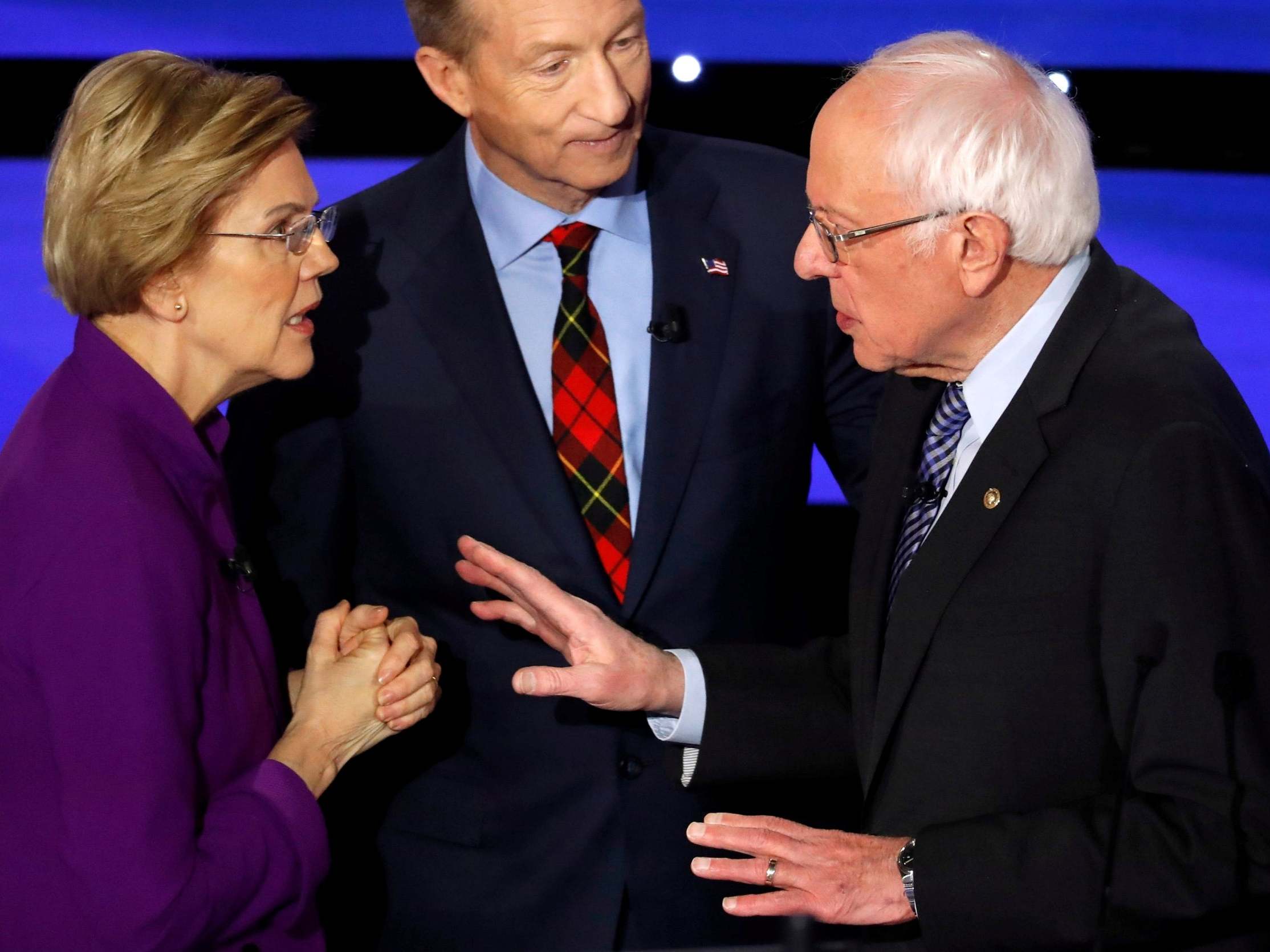Hot mic moments like Sanders and Warren’s are important – we deserve to know what our leaders are really like
When confronted with a story as priceless as the Sanders-Warren spat, the journalistic instinct happily coincides with the public interest

What do you do if a politician says something unwise without realising that they’re being recorded?
The latest victims of a “hot mic” moment are the front-runners in the race for the Democrat nomination for US president. A few days after CNN’s televised election debate the other evening, the network released the audio of an exchange between Bernie Sanders and Elizabeth Warren, which they thought was off-air, about Warren’s allegation that Sanders had told her she couldn’t win against Donald Trump because she was a woman:
“I think you called me a liar on national TV,” said Warren. “Let’s not do it right now,” Sanders replied. “If you want to have that discussion, we’ll have that discussion.” To which Warren replied, “Anytime.” Sanders then continued, saying, “You called me a liar.”
Ethically, should the audio have been put into the public domain? The public has a right to know what aspiring presidents are really like. Yet the truth is that no journalist or media executive will ever spend much time debating the moral or professional standards that should govern such a story – it is simply too good to sit on.
Of course, there must be many examples where broadcasters are too timid to release material, for fear of the repercussions. Some may be too honourable, misguided or not. On the whole, though, the more sensational it is, the more chance it will just get out and go viral anyway.
There is plenty of precedent. Ronald Reagan’s supposedly jokey sound-check for a radio broadcast (“Let’s bomb Russia”); Prince Charles’ sneer at the royal correspondents and Nicholas Witchell in particular (“Bloody people. I can’t bear that man. He’s so awful. He really is”); John Major’s frank remarks about cabinet colleagues causing havoc over Europe (“I could bring in other people... We don’t want another three more of the bastards out there”), which led a group of Tory Euro-rebels to form a gang self-styled, “The Bastards”.
Yet the standout hot mic moment in recent British history is of course Bigotgate. It was instructive, and not just because of what it said about Gordon Brown’s attitude to the public – that their questions about immigration were just unreasonable – but also the way that Brown’s first instinct was to dump on his advisers (“Whose idea was that? Ridiculous”). Of course, it was Brown’s own fault for leaving the mic on, and for being so two-faced – and the public sensed it. It was, in other words, in the public interest to see their prime minister’s true colours.
When confronted with a story as priceless as Bigotgate, The Bastards or the Sanders-Warren spat, the journalistic instinct happily coincides with the public interest. The same goes for the whistleblowers, as Donald Trump’s “perfect” phone call to the Ukrainian president turned out to be grounds for impeachment. If anything, the public ought to be privy to more such conversations.
Yours,
Sean O’Grady
Associate editor
Join our commenting forum
Join thought-provoking conversations, follow other Independent readers and see their replies
Comments
Bookmark popover
Removed from bookmarks